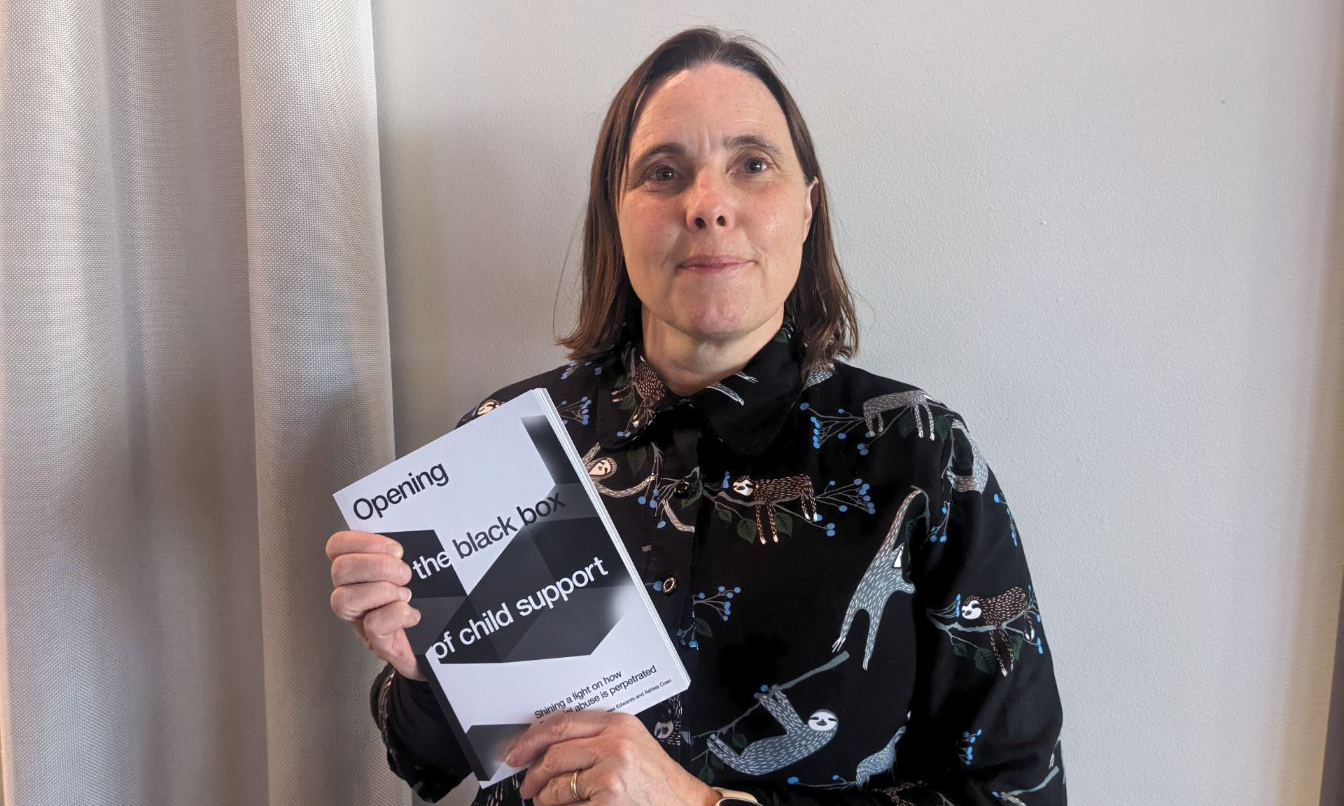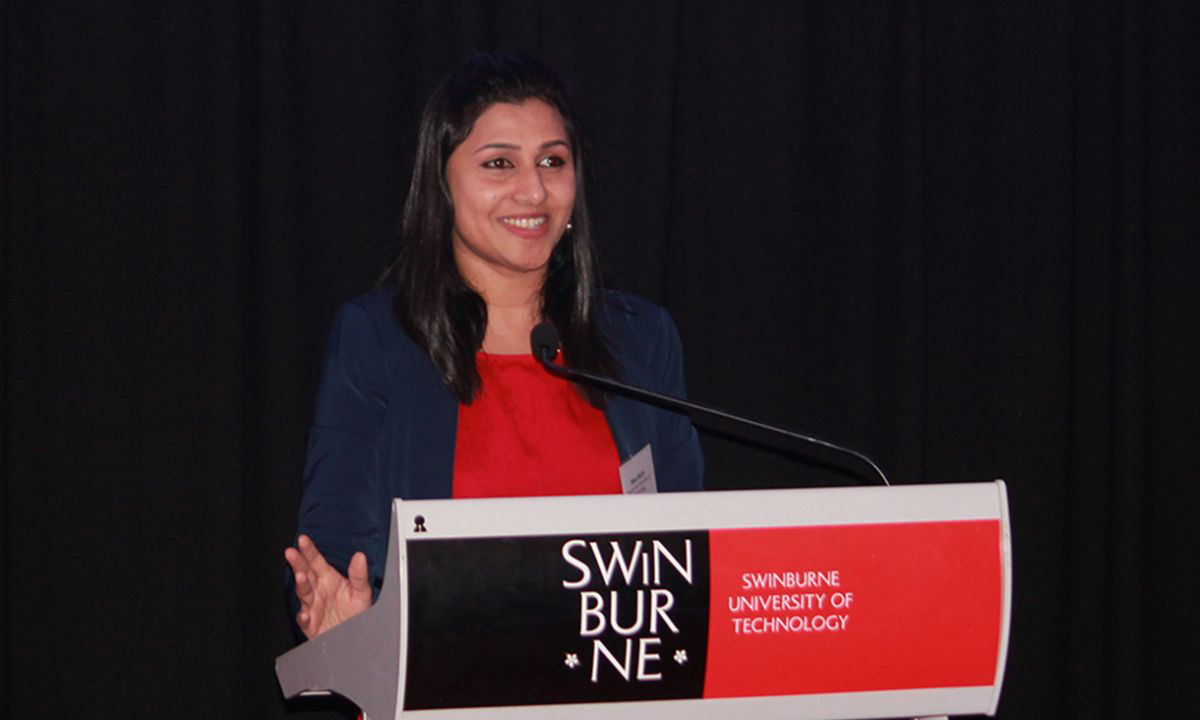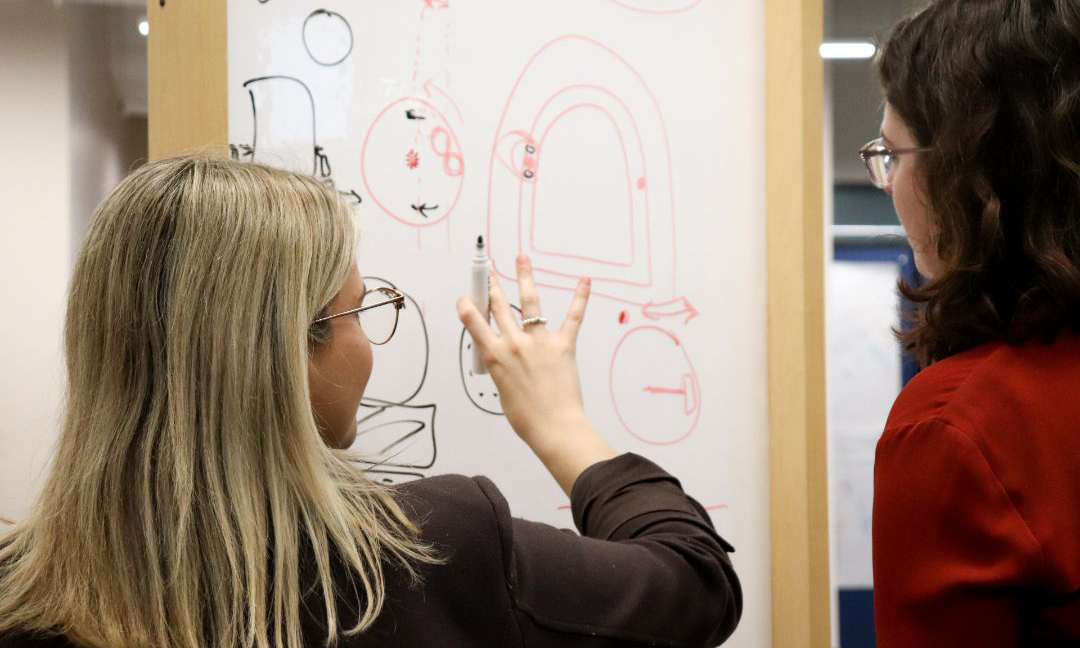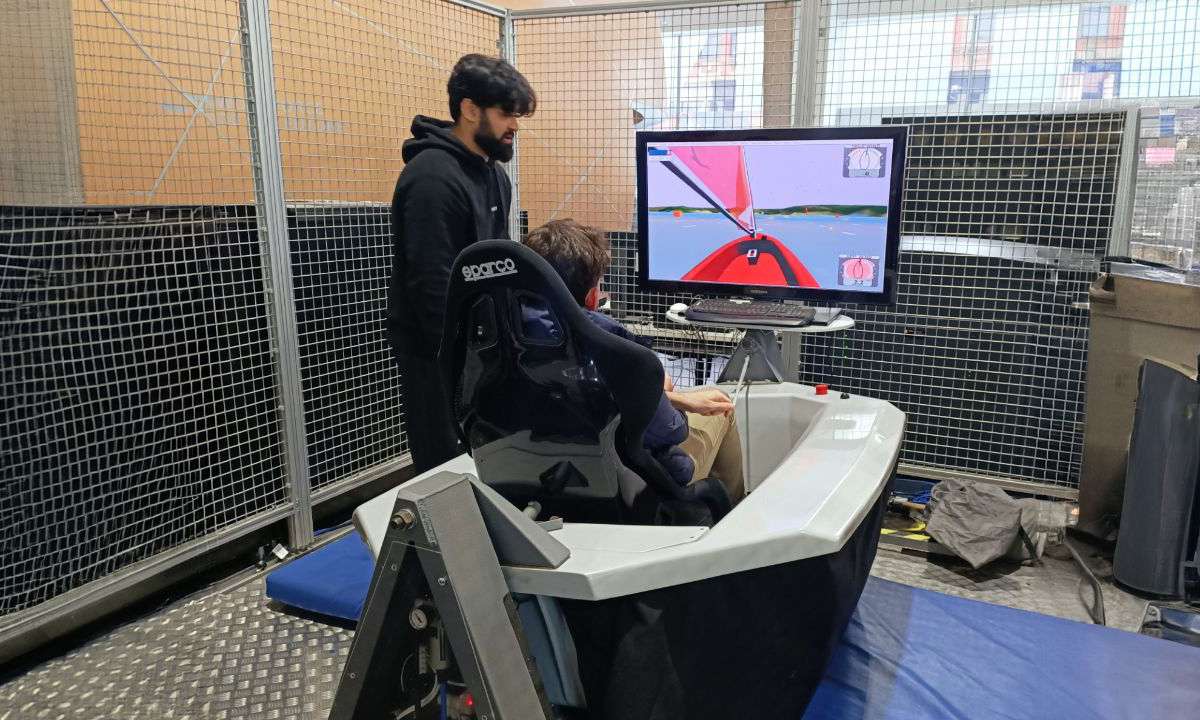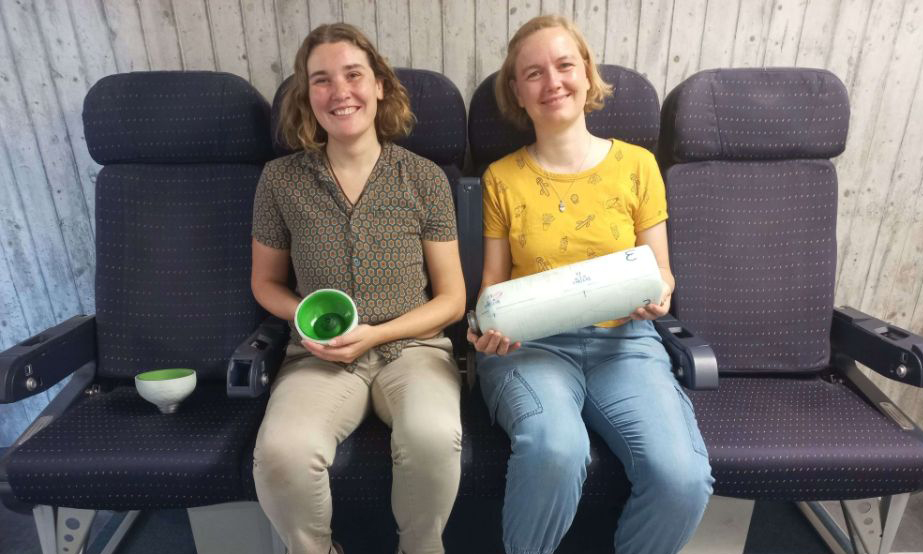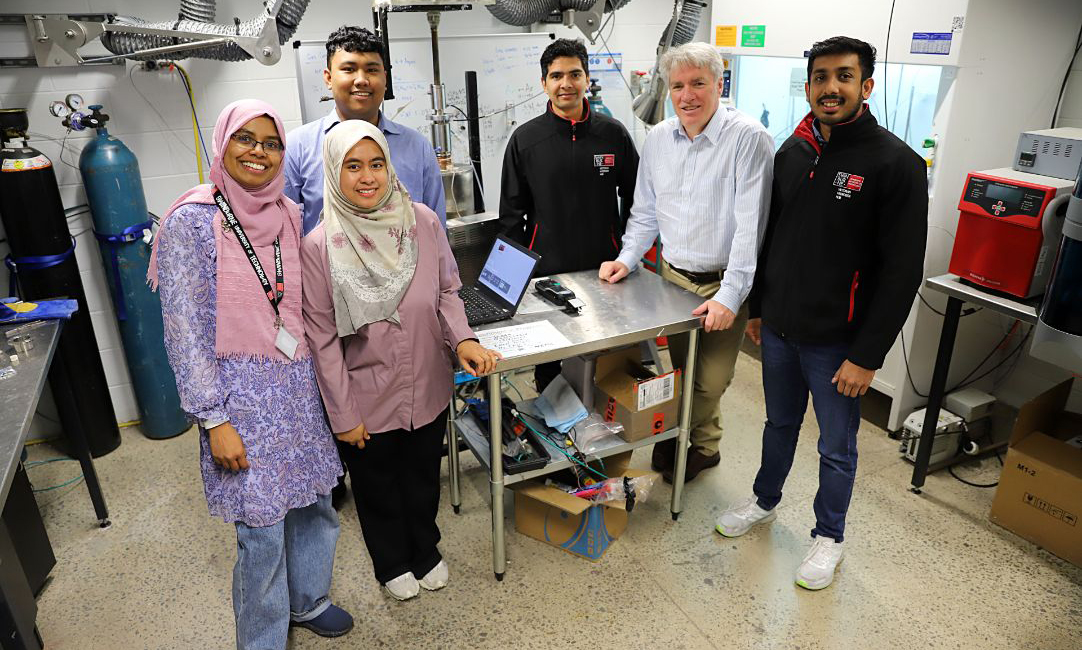
Swinburne University of Technology
Working, teaching and research at Swinburne University of Technology
Information about Swinburne University of Technology for Academics
Swinburne University is a young, innovative and future-focused university, ranking in the top 1% of universities worldwide for research excellence.
We have a reputation for high-quality, award-winning industry engaged research, with particular strengths in astronomy, computer science and information technology, neurosciences and mental health, design, engineering, infrastructure, materials science, physics, and social impact.
Swinburne’s future-focused research combines science, technology and innovation with humanity to deliver genuine, collaborative and sustainable social, environmental and economic impact.
Industry engagement for research impact and commercialisation
Swinburne aims to be the most industry engaged university in Australia. Research partnerships with industry, government bodies and other external organisations are fundamental to our approach.
We seek strategic research partners aligned to our flagship areas, where we can create mutual value through research support, graduate research projects and internships, and commercialisation.
Flagship research areas
Our flagship research hubs and institutes foster interdisciplinary collaboration and deep research connections with industry, business and community, to maximise impact.
Space and Aerospace
- Our global reputation in astrophysics, supercomputing and space aligns with expertise in space technology, aerospace, advanced materials, optical and quantum communications, engineering and instrumentation, visualisation and satellite data analysis, and future air mobility.
- Astrophysics research within our Centre for Astrophysics and Supercomputing spans the entire electromagnetic spectrum, covering computational, theoretical and observational astronomy.
- Our Space Technology and Industry Institute combines internationally competitive capabilities in astrophysics, aerospace, aviation, advanced manufacturing and artificial intelligence to tackle challenges at the forefront of human understanding and imagination.
- Swinburne’s Aerostructures Innovation Research (AIR) Hub is one of Australia’s largest and most active aerospace research collaborations and is developing the next generation of aerostructures for use in civil aviation, electric vertical take-off and landing aircraft, uncrewed aerial systems, advanced air mobility and space.
Medical Technology and Health Innovation
- Our skills in mental health and brain science, combined with our expertise in co-design and clinical translation of medical technologies (MedTech), contributes to impactful outcomes in digital health, mental health, assistive technology, medical devices, biomedical science and engineering, clinical and allied health, and MedTech manufacturing.
- Our Centre for Mental Health and Brain Sciences harnesses research and clinical expertise in mental health, human psychopharmacology and cognitive neuroscience and neuroimaging, leading Swinburne’s psychological and neurobiological mental health research.
- The Iverson Health Innovation Research Institute’s vision is to identify, understand and solve real-world health challenges across the human lifespan. The Institute strategically cultivates connections both within Australia and internationally, across research, industry and government.
- Medical Technology Victoria (MedTechVic) supports and connects individuals and organisations across the assistive and medical device sector in Victoria, ensuring rapid clinical and technical prototyping and manufacturing of new ideas. It brings together individuals with lived disability, their carers, allied health and clinical professionals, engineers, designers and industry to co-create products and services that enhance lives.
Innovative Planet
- We have a passion for sustainability and are dedicated to achieving a carbon neutral world by 2050 or earlier. Our research spans sustainable materials, clean energy and hydrogen, the circular economy, and smart energy management, with social sciences and humanities, contributing to the creation of a sustainable future.
- Swinburne’s Innovative Planet Research Institute applies innovative and socio-technical approaches to address the challenges facing the world’s fast-growing cities — such as climate change, altered energy, food or water security, issues of mobility and health, ageing population and disruptions to the nature of work and home.
- The Victorian Hydrogen Hub (VH2), led by Swinburne in partnership with CSIRO and Germany’s ARENA2036 factory, brings together researchers, industry partners and business to drive the implementation of the hydrogen economy.
Innovative Society
- We lead social innovation in the digital economy by combining social sciences and behavioural sciences with our expertise in cutting-edge design, technology development, data analytics, business and communications.
- We drive innovative social practice through novel methods, data and people networks, and work at the intersection of social challenges and technological potential, striving for greater social equity and digital inclusion.
- Swinburne’s Social Innovation Research Institute works with communities, industry and non-profit organisations to co-create solutions to complex social problems, often involving leading innovative technologies and data analytics. It also explores the impacts of technology and works to understand how to best incorporate technology into daily life for social good.
- The National Centre for Reconciliation Practice at Swinburne explores the opportunities and challenges relating to the Australian reconciliation journey, looking at Indigenous and non-Indigenous peoples' connections with reconciliation, through a rich program of engagement, outreach, education and research activities.
Manufacturing Futures
- We position ourselves at the junction of design, business, engineering and information systems. By integrating advanced manufacturing, digital twins and design-driven innovation into the global value chain, we’re securing Australia’s industrial future.
- The Manufacturing Futures Research Platform acts as a conduit between research and industry to deliver complex solutions, bringing together world-leading expertise in advanced materials, industrial automation and robotics, advanced manufacturing, design and data science.
Digital Capability
- We develop and utilise digital research technologies that push above and beyond traditional business and industry boundaries – secure communications, artificial intelligence, data science and analytics, and quantum computing.
- We aim to be an international leader in digital research technology solutions with a focus on significant partnerships that have strong social and economic impact.
- The Digital Capability Research Platform positions Swinburne as an internationally renowned organisation in digital research, disruption and accelerating innovation. It has a wealth of strategic capabilities across our six labs: the Advanced Visualisation Lab; Cybersecurity Lab; Intelligent Data Analytics Lab; The Internet of Things Lab; Software Systems Lab; and the Blockchain Innovation Lab.
Research, innovation and entrepreneurship
Innovation is a mission-critical function for Swinburne, driving value creation and taking ideas and research breakthroughs to market – sooner, stronger and more strategically.
By embedding innovation and commercialisation at the heart of Swinburne, we’ve created a pipeline from research discoveries to commercial value and societal benefit. Innovative ideas and research breakthroughs are converted into new commercial ventures, driving further re-investment in research from our portfolio of startups and spinouts.
Top 10 most published research areas, 2023:
- Astronomy & Astrophysics
- Electrical & Electronic Engineering
- Materials Science
- Information Systems
- Psychiatry
- Civil Engineering
- Environmental Sciences
- Energy & Fuels
- Business
- Artificial Intelligence
Accreditations:
- CRICOS 00111D
- More Than Our Rank
Key Statistics for Professionals
Key data points related to studying at Swinburne University of Technology
- Total staff, full-time equivalent (FTE), 2023
- 1,773
- Total academic staff, full-time equivalent (FTE), 2023
- 768
- Number of Web of Science documents, 2023
- 2,214
- Percentage of all Open Access documents, 2023
- 64%
- Percentage of documents in the top 1%, 2023
- 3.57%
- Percentage of documents in the top 10%, 2023
- 18.07%
- Total research income, 2023
- AUD $71M
Jobs at Swinburne University of Technology
Open positions for academics and staff at Swinburne University of Technology
See all
research hub
Research
Latest research news
Articles and news relating to research at Swinburne University of Technology
See all
campus plus
Resources
Professional advice for academics and university staff
All the latest insight on working in higher education from Swinburne University of Technology
See all





